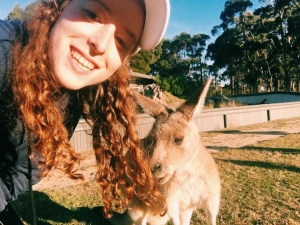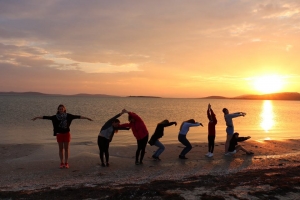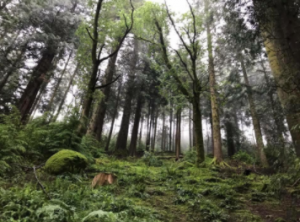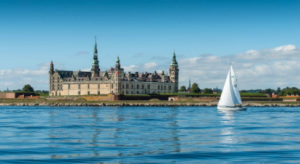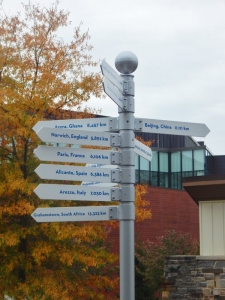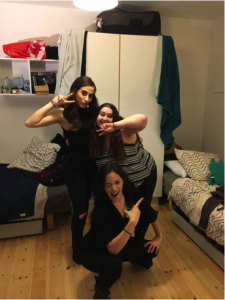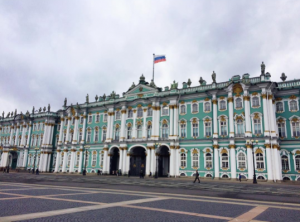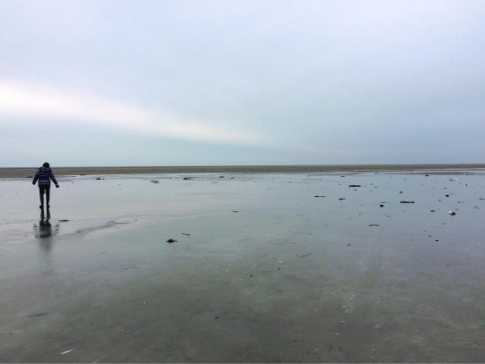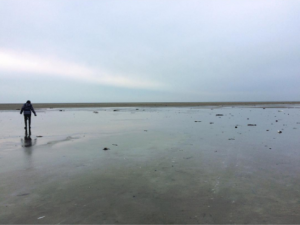When Friends are Abroad

Studying abroad, on either and ICA or a semester, is a quintessential part of the Goucher experience, but what happens when all your friends are studying abroad for a semester and you’re not? This happened to me this semester, and is going to be even more apparent next semester as well. While it’s been a difficult experience, I’ve definitely learned a lot from it and I wanted to share some of my insight.
My freshman year, one thing that I loved about Goucher was being able to walk down Van Meter and overhear conversations such as, “Professors were just so different in Paris” or “I miss the food from Seville so much!”. There was so much casual name dropping of people’s amazing experiences, I was so impressed and jealous of everyone. When it came time for me to decide where I was going abroad, I so badly wanted to go abroad for an entire semester, however it soon became clear this wasn’t possible. It became obvious that with the schedule of my two majors that I wasn’t going to be able to both go abroad for a semester and graduate in four years. Even though I was disappointed, I was still happy and excited for the different ICA programs that I could possibly go on. However, it turned out that most of my friends were all going abroad my junior year, leading to me to feel nervous about what Goucher would be like without them.
The first thing I struggled with was feeling jealous. It was super easy to feel inadequate and like I wasn’t having the ‘correct’ Goucher experience because I wasn’t going abroad for a semester. This was especially hard when my friends would tell me about how beautiful Scotland was or how great the beer in Brussels is. I genuinely wanted to hear about their experiences, but also struggled with feeling jealous. I’ve found that while it’s important to listen to my friends and hear about their lives, it’s also necessary to take space away from it as well.
My daily routine has also been disrupted. I’m used to getting coffee with the people I usually have class with around midday, but those people aren’t here this semester. I felt lost at the beginning of the semester because I found myself wanting to get lunch, but not knowing who to text; my go-to people were all eating dinner halfway around the world. This took some getting used to, and I definitely had a few weeks of feeling kind of lonely. However, it also pushed me to reach out to some new people who I had wanted to get closer with.
While it did feel lonely at first, I got to make some incredible new friends. I now feel a lot more like Goucher is my home and that I have a stronger connection to this community, after I was pushed to expand outside my little bubble. I also got to change up my normal Goucher routine and see what a change of pace was like. I’ve been seeing more of Baltimore and trying new things that I would never have had the chance to do if I hadn’t expanded who I was hanging out with.
Another very important part of this for me was getting really excited about the ICA’s Goucher has to offer. We have some amazing programs, with incredible and passionate professors running them! An ICA is very different than a semester for sure, but it’s equally as valuable and enriching as one.
Being at Goucher while your friends are abroad is hard. It’s a big adjustment especially if you have settled into a friend group and a pretty consistent routine. But change is good, and shaking our routines and experiences, while difficult at first, is ultimately positive.

